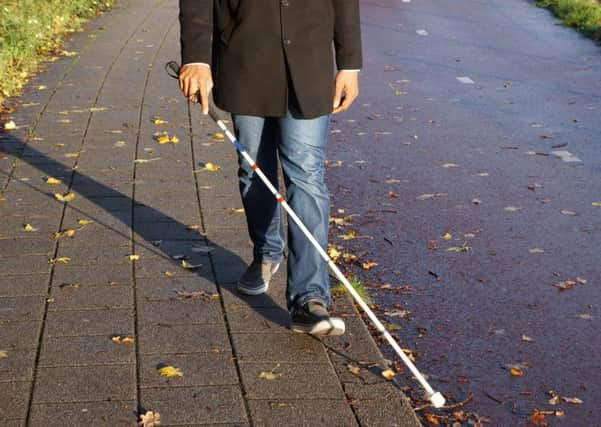Sight loss charity urges ban extension on Edinburgh’s advertising boards


RNIB Scotland said carelessness and ill-thought out street design created obstacles for people with sight loss.
The charity praised Edinburgh’s ban on pavement advertising boards introduced last October, urging the city council to extend the prohibition beyond the one-year trial.
Advertisement
Hide AdAdvertisement
Hide AdAnd it said it hoped other local authorities would follow suit.
A survey by the RNIB found 95 per cent of people with sight loss had collided with an obstacle in the street in a three-month period.
Catriona Burness, campaigns manager for RNIB Scotland, said: “Collisions can dent people’s confidence and make them less likely to venture out. RNIB campaigns for safer streets, including a reduction in clutter to create a streetscape that blind and partially sighted people can navigate safely and independently.
“Our members have also complained about bollards, bins and pavement-parking among the all too common obstacles they encounter.”
Advertisement
Hide AdAdvertisement
Hide AdBut she said Edinburgh was leading the way with the A-board ban. “We have very much welcomed this move to make the Capital’s streets safer for residents and visitors with disabilities,” said Ms Burness.
As well as pressing the council to extend the ban and encouraging other councils to adopt it too, RNIB Scotland called on the Scottish Government to strengthen existing legislation, pointing out the 2010 Equality Act requires public authorities to take reasonable steps to enable disabled people to avoid substantial disadvantages caused by physical features. The charity says it is opposed to the concept of “shared spaces” where there is no distinction between road and pavement.
It argues such an approach relies on pedestrians being able to see cars and cycles, which means people with sight loss are at severe disadvantage. And it points out people using a white stick need a kerb so they can tell the difference between road and pavement.
Blind and partially sighted people were yesterday meeting Lothians Conservative MSP Jeremy Balfour, chair of the Cross Party Group on Disability in the Scottish Parliament, to discuss the impact street clutter and poor street design have on their lives.
Advertisement
Hide AdAdvertisement
Hide AdMr Balfour, who is currently the only MSP who identifies as disabled, said one issue which might sound trivial but could be a really big problem was how refuse collectors put the bins back.
He said: “Walk along any residential street after the bins have been emptied and they are scattered literally all over the street. It’s like doing a slalom.
“We just need people to think: what will this mean for someone with an assistance dog, someone with a wheelchair, people with mobility problems or even a parent with a buggy.”
Transport convener Lesley Macinnes said the city-wide ban on A-boards was the first phase in a concerted crackdown on street clutter.